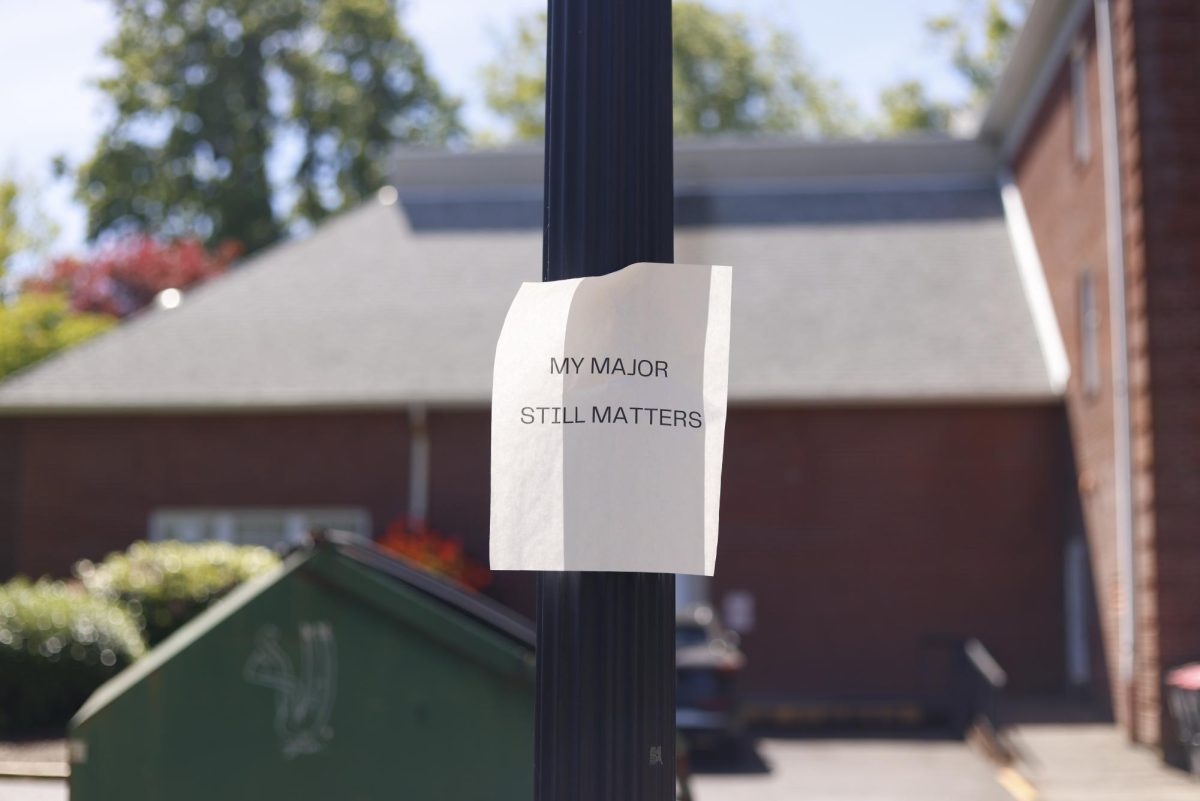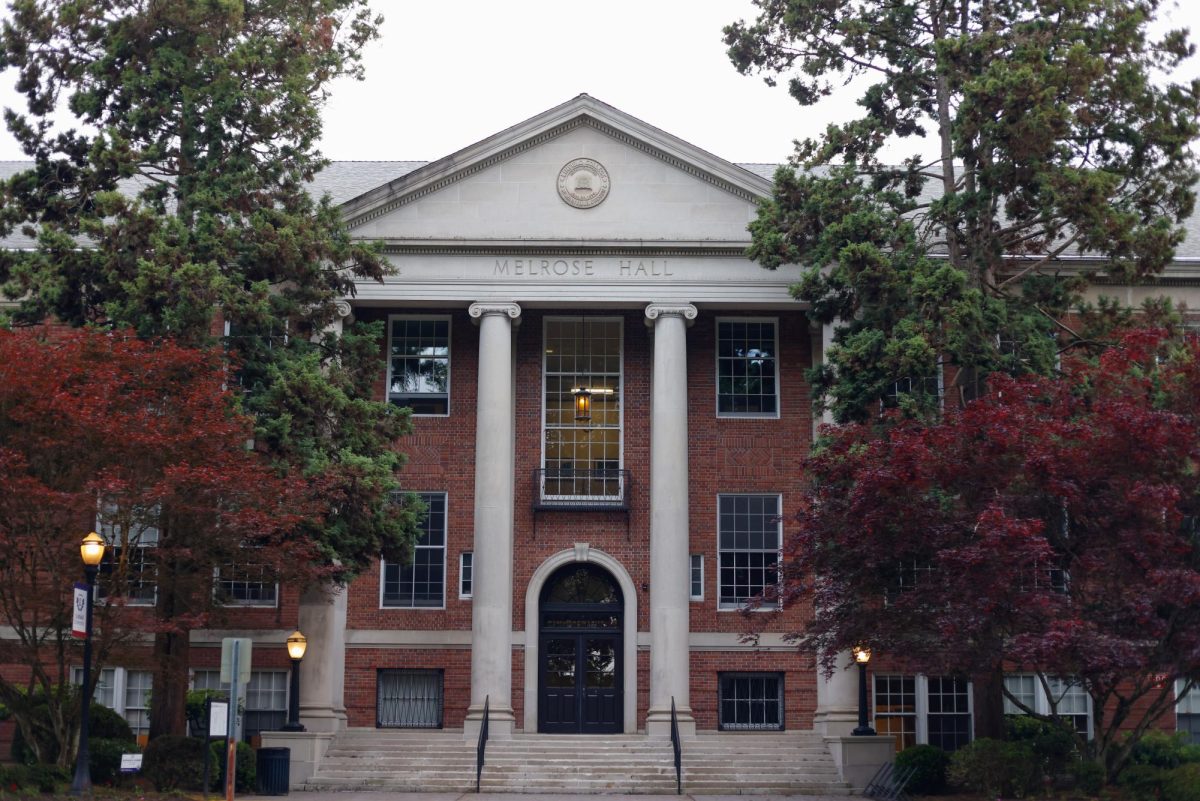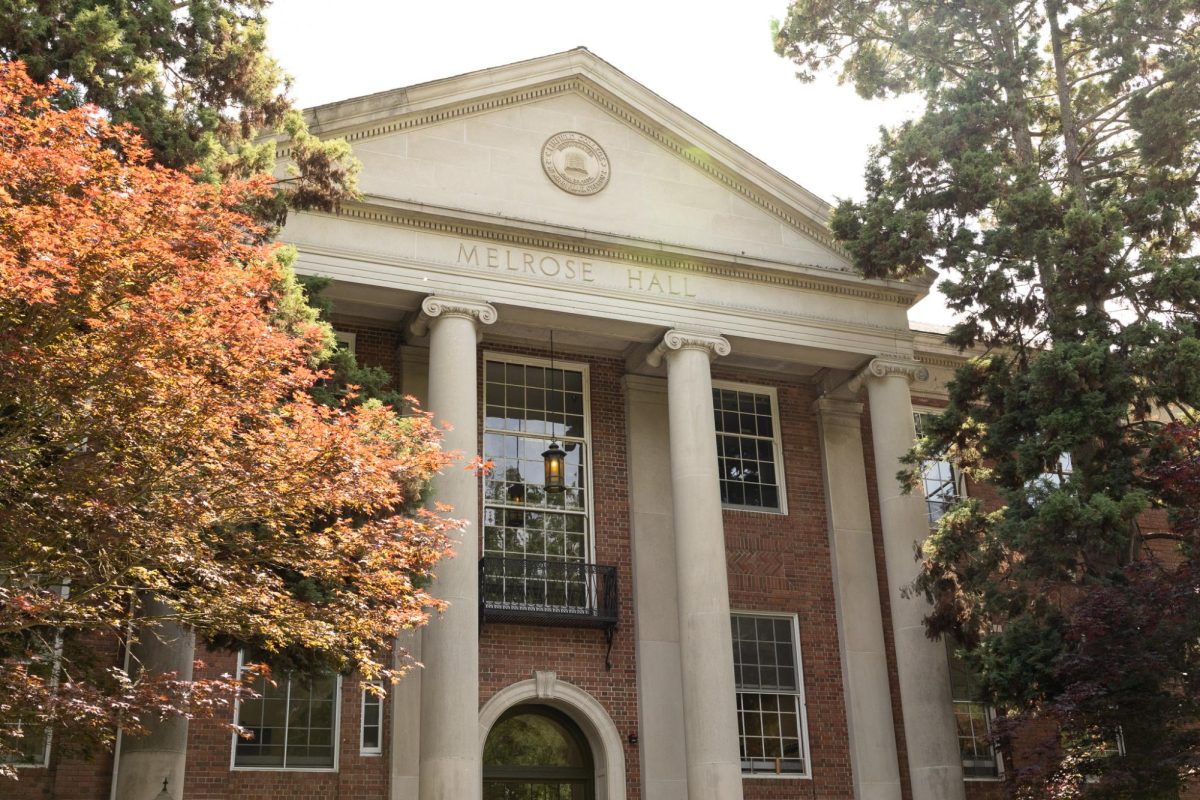
Thaddeus Russell, adju-nct assistant professor of American studies at Occidental College, delivered the Jonas A. Steine Jonasson Endowed Lecture, which emphasized the cultural clashes that have come to define American culture today.
“I want to introduce you to your cultural ancestors,” Russell said. “Your cultural ancestors are drunks, prostitutes and shiftless slaves. These people should also be your heroes because they pioneered the freedoms that you enjoy today.”
Russell said that because of the Protestant-inspired idea that work is virtuous, early Americans didn’t partake in vacations or weekends because idleness was considered evil.
Newspapers, textbooks and pamphlets all reprimanded people who embraced leisure and recreational activities, creating a culture that valued work on a religious level, he said.
“Thankfully for us, there were many children who didn’t follow these lessons after they became adults,” Russell said. “They grew up to be heroes in my book. And if you value the weekend, I think that they should be your heroes, too.”
Modern Americans should be thankful to lazy workers and “shiftless slaves” for the development of vacations and weekends,
Russell said.
The Protestant work ethic wasn’t a universal idea, so slaves and immigrant workers came to America with a smaller capacity to work without breaks or vacations, he said.
Slaves pioneered the idea of vacations by running away from the fields for periods of time to take a break from working before coming back to their plantations to continue, Russell explained.
He said this tendency to take breaks from manual labor made an impact on plantation owners and philosophers of the time who began to assume that African-American slaves were biologically lazy.
Russell also highlighted prostitution as a contributor to the freedoms of women today. Such Freedoms included owning property,
wearing make-up and appearing in public without a male chaperone.
“Prostitutes were the first women to break free of what feminists rightly called ‘the system of female servitude,’” Russell said.
He included that, according to an 1859 survey by William Sanger, more than a quarter of the 19th century prostitutes surveyed said that they chose the job to fulfill sexual desires.
Russell said that prostitutes earned higher wages than the average construction worker at the time and that they received healthcare, food and housing through the brothels run by madams. This led to the idea that women can receive high wages and benefits for work.
He also said that prostitute styles and values, such as their attire, hairstyles, dancing and willingness to participate in interracial sex, eventually made their way to women of higher classes.
“Did prostitutes stand for the things they did because they had a moral or political agenda? No,” Russell said. “But like all good renegades, they weren’t committed to morality at all.”
Junior Matt Brown said he thought the lecture was important because it offered students a more complete view of American history.
“We should be able to understand history in a holistic manner,” Brown said. “A lot of factors play into how we view culture, but people tend to look at issues singularly or with a bias.”
Junior Ryan Reed said that it is useful to be aware of popular culture’s origins.
“It’s important to understand the background of the things that we get pleasure from as a society,” he said.
Russell is the author of “A Renegade History of The United States” and has written for publications such as The Los Angeles Times, Boston Globe and New York Magazine. He has also appeared on The Daily Show and the History
Channel.
Joanna Peterson, culture editor, [email protected]






